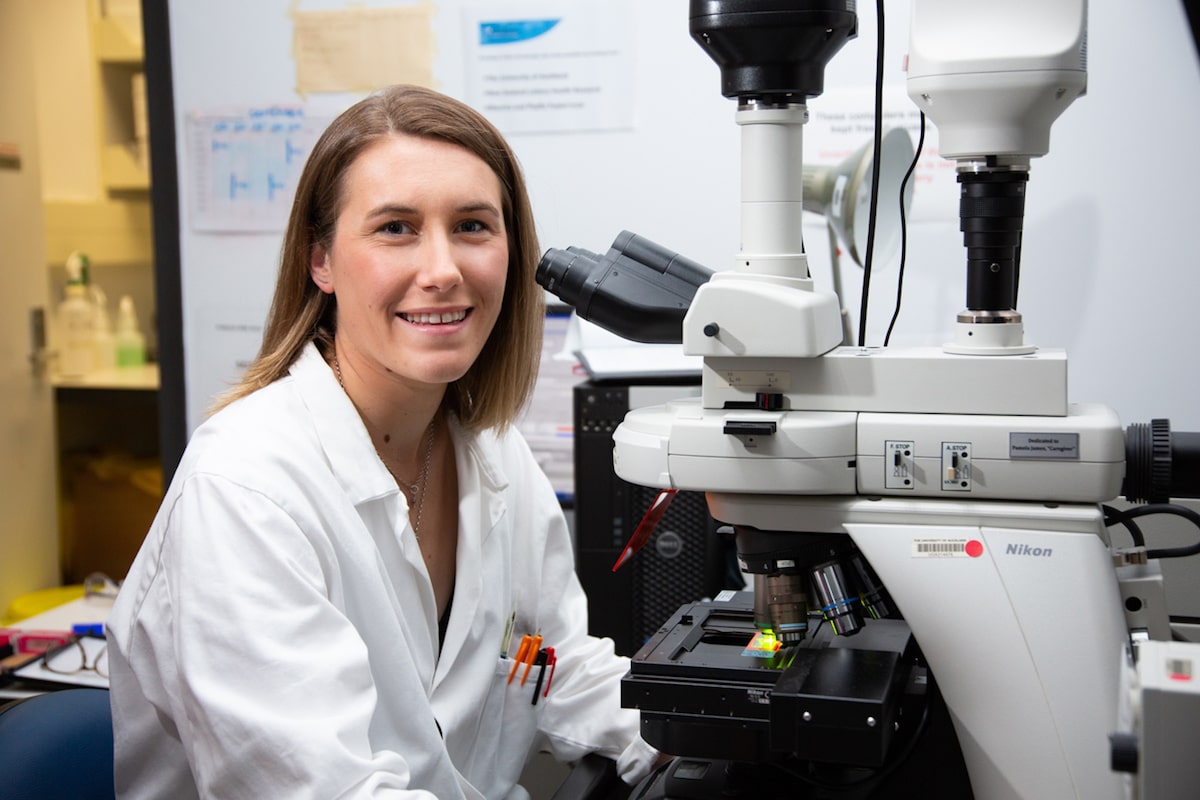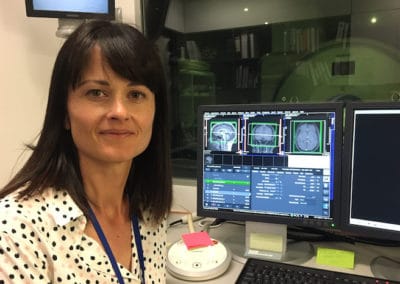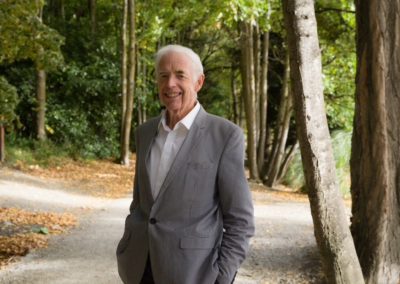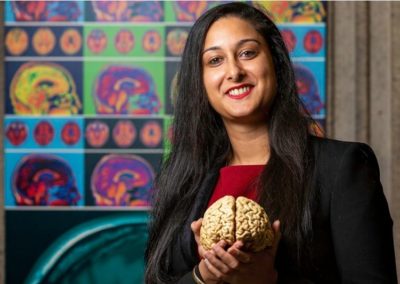Tell us a little bit about your research, what do you do?
My research focuses on understanding how the immune cells of the brain, called microglia, change in neurodegenerative diseases. Microglia normally function to help the brain heal from damage and/or disease. There is increasing evidence that microglia become dysfunctional in neurodegenerative diseases, which can be toxic to neurons, thereby contributing to disease. Because of their potential to both help and harm the brain, understanding how they change in disease is key to developing potential therapies.
What do you enjoy most about your work?
One aspect I really love about my work is problem solving to get the most out of every experiment I do. I have the incredible privilege to carry out research using post-mortem human brain tissue. We aim to make the most of this precious resource and one of the ways I do this is trying to get the most information out of every section I image under the microscope. I develop image analysis pipelines that mean I not only quantify changes in microglia in post-mortem human tissue but I also map these changes to anatomy and disease pathological proteins. Developing these pipelines is one of the favourite parts of my work. The problem solving involved is addictive and better yet, I know I am making the most of a precious resource.
How did you get interested in (neuro)science?
When I was at school, I was always told I would make a good medical doctor because I was confident around people, I could communicate ideas well, and I loved everything science. Because of this, I initially attended university hoping to study medicine. After not being accepted into the medical programme, I continued with a Biomedical Science degree because ultimately, I loved science. In my second year, I attended a lecture given by Professor Maurice Curtis and fell in love with the brain. He explained the complexities of an organ we do not fully understand so eloquently and somehow made it simple. My love for neuroscience started then and has continued.
Which (female) scientist inspires you most?
The female scientist that inspires me most is New Zealand researcher, Dr Emma Scotter. To me, she is the full package as a scientist and she also happens to be an awesome woman. She has worked incredibly hard and her career progression shows that. Not only that, but she has mentored numerous post-graduate students and early career researchers, including myself. She is not just doing the job for the love of science. You can tell she cares about her students and co-workers, as well as the community we are doing this work for. To me, these are all key features that make an all-round scientist that will be valued by the community.
What were the greatest challenges you have faced as a female scientist? How have you overcome them?
While it is not specific to women, my biggest challenge has been struggling with imposter syndrome. I go through phases where I doubt that I am good enough or think that other people are better and more deserving. I would not say I have overcome this, but I have definitely learnt to deal with it better. I am lucky enough to have co-workers who believe in me and my research. I have learnt to trust their feedback and forge on through my own doubts.
What needs to change to make things better for the next generation of women and girl scientists?
I think we need to work harder to build other women up. Sometimes we can get too competitive and our ambition can make it hard to see that we are working alongside many other talented women and girls. It is easy to go to a fellow female student or co-worker and tell them they are doing a good job. Small acts like that would make it easier for women to feel confident in science.
What advice would you give to young women and girls today?
Follow your passion. If you love something, it makes it so much easier to keep going through the tough days. It is scary to chase your dreams, but if you are chasing something you love the fear is worth the reward.
Dr Molly Swanson is a Post-doctoral Research Fellow in the Motor Neuron Disease research group under Dr Emma Scotter. She completed a PhD, funded by Brain Research New Zealand, at the University of Auckland.
Read about more inspiring neuroscientists in our Women in Science series.



